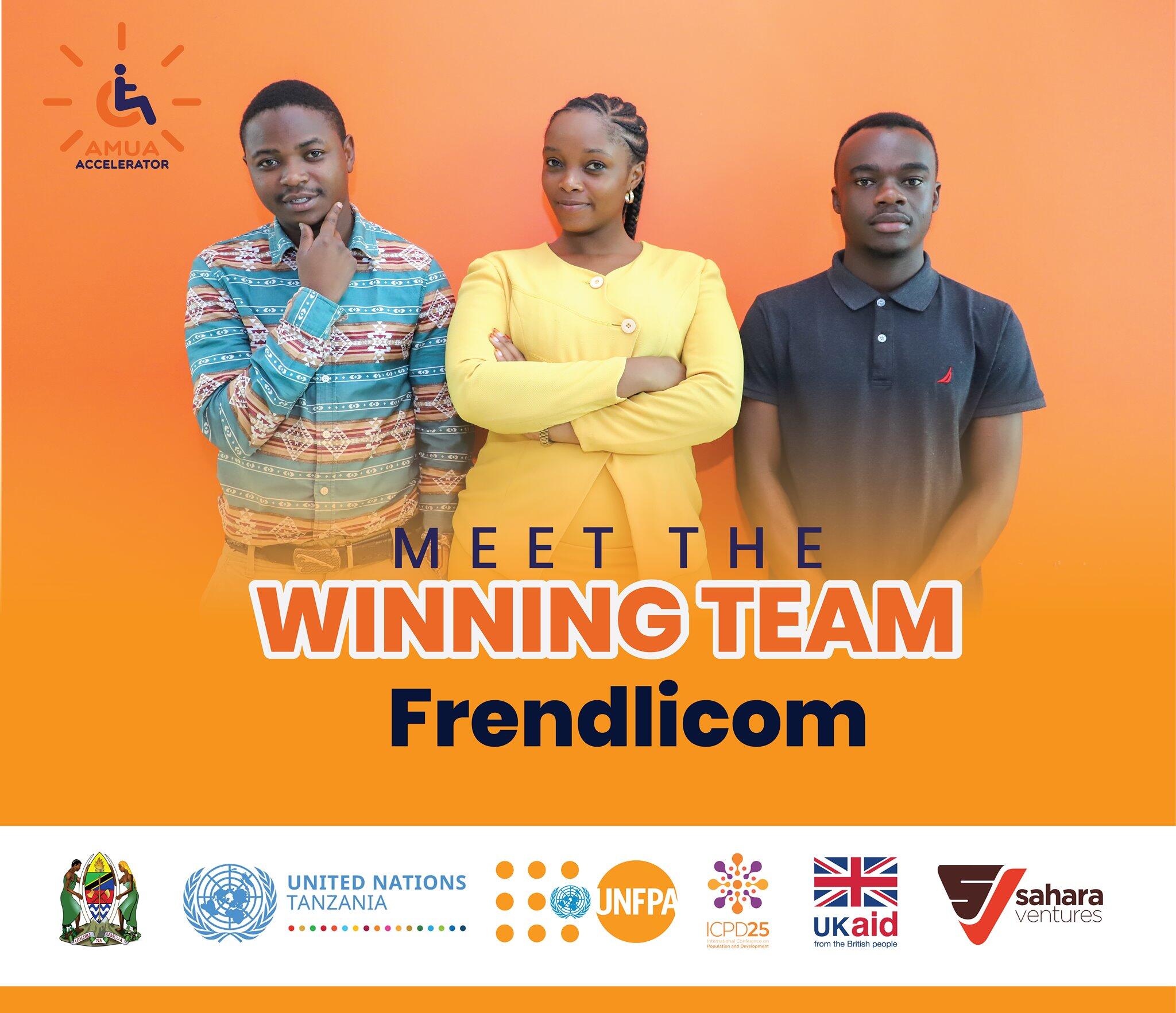On 12 August – as youth around the world celebrated International Youth Day, with this year’s theme Youth Engagement for Global Action – AMUA Accelerator II reached the end of its start-up incubation in Tanzania climaxing with the highly-anticipated virtual Demo Day. Seven teams of youth innovators battled it out, pitching their digital solutions, products and services to a panel of judges with the hope of being awarded $6,000 seed funding and further technical support to finetune their products into sustainable and cost-effective business solutions.
“How can youth living with a disability easily access age-appropriate sexual and reproductive health information and services?”
AMUA Accelerator II began with one question at the launch in Dodoma in April 2019: “How can youth living with a disability easily access age-appropriate sexual and reproductive health information and services?” Following the launch, the innovation accelerator travelled across the country meeting with youth, innovators and entrepreneurs and inviting them to come up with business solutions that would address this challenge for some of the country’s most marginalized and furthest behind youth. Through TV and radio, innovation spaces, organizations working with and representing people living with disabilities, and hackathons over 1.1 million youth across Tanzania were encouraged to get involved with over 360 ideas submitted to the jury – 10 were selected for the next stage of extensive trainings in Dar es Salaam, whittled down to a final seven for Demo Day.
At the virtual Demo Day event, and following a fierce pitch war between the seven teams, the judges were left with the difficult task of selecting four innovations – although it is hoped that the other three teams will be supported to explore opportunities to further grow their ideas – the winners?

- eAfya, Dar es Salaam, are building a voice-based mobile app to help people with visual impairment and low literacy skills access sexual and reproductive health information.
- Nulaif Centre, Kilimanjaro, have set up a community hub where youth with disabilities can access sexual and reproductive health services and information as well as income-generating activities.
- Frendlicom, Iringa, are developing a software platform that will instantly translate sign language to Kiswahili text speech and vice versa. The platform will facilitate communication between healthcare workers and with clients with hearing impairments.
- Safe Box, also from Kilimanjaro, are incorporating sexual and reproductive health services into rehabilitation services through a package of “Safe” initiatives such as classes, cards and consultations.
AMUA II – a public/private partnership between UNFPA and Sahara Ventures, with the support of UK Aid – builds on the success of AMUA I, and is in line with UNFPA Tanzania’s priorities to create platforms that give young entrepreneurs in the country the opportunity to design and take to scale innovative and profitable digital solutions and products that expand the possibilities for all youth to fulfil their potential and lead healthier lives.


